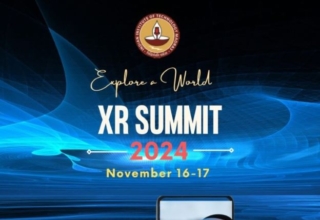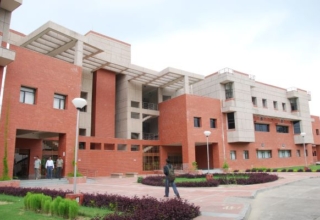An analytical approach and some of the tips listed here will help you crack JEE (Advanced)
By Ramesh Batlish, Senior Faculty FIITJEE, New Delhi
The JEE (Advanced) (formerly known as IIT-JEE) is an annual college entrance examination of the IITs in India. It is also one of the toughest engineering entrance exams in the world. Only 1.5 lakh (approx.) students short listed from JEE (Main) will appear for the JEE (Advanced) 2015 on May 24, 2015. A serious aspirant ideally must have completed the syllabus by now.
Schedule of JEE (Advanced)-2015
The examination will be held on Sunday, May 24, 2015 as per the schedule given below:
| Paper 1 | 9:00 to 12:00 hrs. (IST) |
| Paper 2 | 14:00 to 17:00 hrs. (IST) |
EXAMINATION PATTERN:
- There will be two question papers, each of three hours duration. Both the question papers will consist of three separate sections on Chemistry, Physics and Mathematics. They will be of objective type, designed to test comprehension, reasoning and analytical ability of candidates.
- All the questions will be Multiple Choice Type (MCQ)
- Negative marking scheme will be followed in the checking of examinations.
- The candidate can opt for question paper in any of the language viz. English or Hindi.
SYLLABUS COVERAGE:
JEE Syllabus of Class XI & XII contributes about 45% and 55% of IIT-JEE question-papers respectively. While preparing all the chapters of Physics, Chemistry and Mathematics, based on our past experience stress may be given in particular on the following topics:
Mathematics: Quadratic Equations & Expressions, Complex Numbers, Probability, Vectors & 3D Geometry, Matrices in Algebra; Circle, Parabola, Hyperbola in Coordinate Geometry; Functions, Limits, Continuity and Differentiability, Application of Derivatives, Definite Integral in Calculus.
Physics: Mechanics, Fluids, Heat & Thermodynamics, Waves and Sound, Capacitors & Electrostatics, Magnetics, Electromagnetic Induction, Optics and Modern Physics.
Chemistry: Qualitative Analysis, Coordination Chemistry & Chemical Bonding in Inorganic Chemistry, Electrochemistry, Thermodynamics, Chemical Equilibrium in Physical Chemistry and Organic Chemistry Complete as a topic.
Subject wise Tips for JEE (Advanced): MATHEMATICS
1. Previous JEE papers suggest that more attention should be paid to topics like Vectors and 3-D than Probability or Indefinite integration as vectors and 3-D offers very less scope to examiner, as far as variety in problem is concerned. One more chapter is Complex Number, every year 2-3 problems (of purely complex no.) are asked. Hence mastering complex numbers, vectors, 3-D and Definite integral must be on top priority.
2. Algebra can be made easier if you have the ability to picture functions as graphs and are good at applying vertical and horizontal origin shifts carefully as zeroes of functions and other specific values can be done in much less time using these techniques.
3. Differential calculus again relates well to roots of equations, especially if you use the Rolle’s and Lagrange’s theorems.
4. Complex numbers can be used to solve questions in co- ordinate geometry too. Trigonometric questions require applications of De Moivre’s theorem.
5. Permutation – Combination and Probability is another very important topic in algebra .You need to be thorough with the basics of Bayes theorem, derangements and various ways of distribution, taking care of cases where objects are identical and when they are not.
6. Matrices can be related to equations, hence a 3×3 matrix can actually be visualized as being three-planed in 3D geometry. Determinants have some very nice properties, for instance, the ability to break them into two using a common summand from a row/ column, which should be made use of in tougher questions.
7. Integral calculus can be simplified using tricks and keeping in mind some basic varieties of integrable functions. Remembering the properties and applying them wisely saves lot of time.
8. Coordinate geometry requires a good working knowledge of the parametric forms of various conic sections and an ability to convert the other, tougher ones to these basic forms and then interpret the solutions accordingly.
9. Finally the only one way to do well in Mathematics is to practice problems keeping in mind the pattern of questions in previous years’ JEE papers.
Subject wise Tips for JEE (Advanced): CHEMISTRY
1. Conceptual clarity, application skills and awareness to the prescribed syllabus should be the main focus.
2. Practice the most relevant numerical daily to develop speed. Pay special attention to the topics like Mole concept, Chemical Equilibrium and Electrochemistry.
3. Take a careful and patient approach for Organic chemistry giving particular attention to the topics like Stereochemistry, GOC (General Organic Chemistry) and Functional Group Analysis.
4. In Inorganic chemistry most of the questions which are asked are really conceptual, concerned with structures, processes and applications. Special attention is a must to the topics like Chemical Bonding and Coordination Chemistry.
Subject wise Tips for JEE (Advanced): PHYSICS
1. Mechanics is one topic of Physics that is considered less scoring by most experts. However to add to the dilemma this is also the topic that forms the major portion of the JEE (Advanced) in terms of marks. So this topic cannot be neglected.
2. One must also try to concentrate on other scoring topics to ensure a better performance, for example Optics, Electricity and Magnetism, etc.
3. Kinematics and Particle dynamics are very important topics of Mechanics that make regular appearance in the JEE papers.
5. According to the general trends, Mechanics and Electricity and Magnetism are the most important topics in terms of the number of questions asked in JEE of previous years.
6. In the decreasing order of the marks they carry are listed different topics of Physics according to their appearance in previous year’s papers.
- Mechanics and Electricity and Magnetism (Equal importance)
- Modern Physics
- Optics
- Heat and Thermodynamics and Waves and Sound
- Measurement and errors
7. Thermodynamics is important from the terms of both Physics and Chemistry so concentrate on that as well. It is wise to cover Wave Optics first in ‘Optics’ topic. The reason is that the portion is smaller compared to Ray Optics thus quick to cover.
Cracking the JEE (ADVANCED) 2015
- Stay focussed and maintain a positive attitude
- Develop speed. Refer to reputed mock-test series to build a winning exam temperament. Solve the past year’s IIT-JEE papers. Focus on your weak areas and improve upon your concepts.
- Practise of JEE level questions is necessary as it improves your reasoning and analytical ability.
- Remember it is quality of time spent and not the quantity alone. Hence give short breaks of 5 to 10 minutes every 1-2 hours of serious study. Completely relax when you take a break. Practice meditation to develop inner calm, poise, confidence and power of concentration.
- Don’t overstress yourself. Five to six hours of sleep every night is a must, especially three-four days before IIT-JEE to keep you physically and mentally fit. While short naps may help to regain freshness, avoid over-sleeping during the day.
- Finally, don’t be nervous if you find the paper tough since it is the relative performance that counts. Put your best analytical mind to work, and believe in your preparation.
Tips for the D-Day:
- Reach the Test Centre atleast 30 min before the exams starts.
- Ensure to carry your Admit Card/writing material/bottle of drinking water.
- One must carefully read the instructions in the question paper and attempt all questions which do not carry negative marking. Avoid answering all questions, if you are not sure. Attempt only those questions which you are sure of.
- To ensure all subjects get adequate time, one must broadly allocate 1 hr to each subject.
- One must adopt a strategy to attempt the questions in the paper so that your weaker subject gets sufficient time. Prioritize after a quick glance and start answering with the question you know best & move progressively to the ones you find difficult after attempting the complete paper. You must definitely attempt questions carrying no negative marks.
- Remember it is the relative performance that counts, so give it your best shot and you will ace JEE.
All The Very Best!!!










